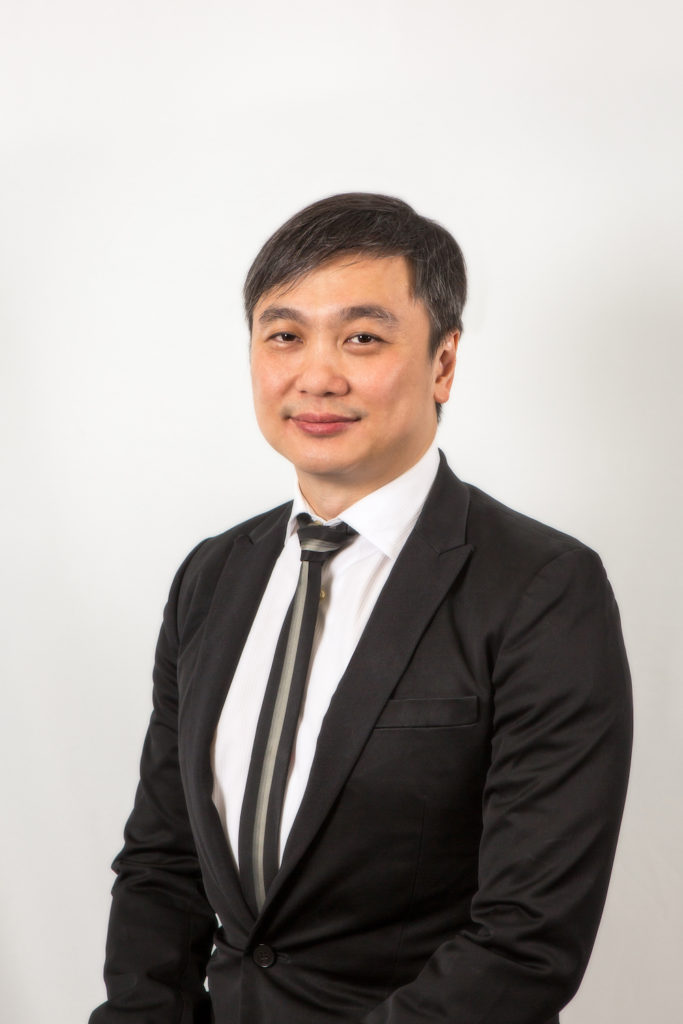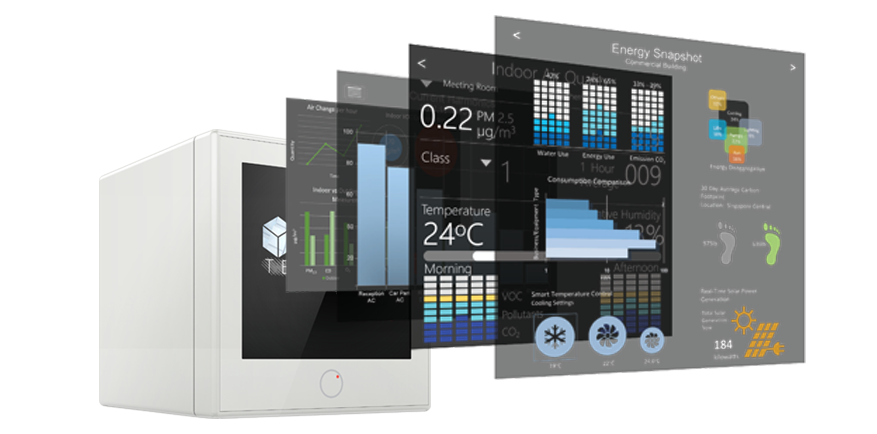When Alex Lau started his company in 2006, the contours of Singapore’s tech startup ecosystem were still being drawn. Anacle, Lau’s startup, was formed to provide technological tools that shape the infrastructure of smart cities. At first, it was challenging to acquire clients, for the basic reason that few knew what a “smart city” encompasses. And without a customer base, it was difficult to gain recognition when multinational tech companies that had decades of operational experience were shaping the industry.
“If you build a startup in the US, it’d be a lot easier for you to get recognized, because generally the American or western market is more open to using technology from startups, while companies in Asia are more conservative,” Lau said to KrASIA.
Anacle designs and develops end-to-end solutions for smart cities. That means the company’s core mission is to make cities more comfortable to inhabit, more efficient for anyone who lives and works within the community. Even with that appeal, it took a while for the company to land high-profile clients. But then their reputation began to spread by word of mouth, from one satisfied customer to the next entity that was seeking upgrades to its own infrastructure. Now, Anacle is the company behind most of Singapore’s smart city projects, according to Lau.
“In 2018, Singapore won the Smart City of 2018 award at the Smart City Expo World Congress in Barcelona, and Anacle was one of the government’s partners that were present to receive the award,” the CEO said.
A smart city uses advanced, interconnected technology to solve urban problems and enhance the quality of life for its residents. This entails the utilization of intelligent solutions for energy generation and distribution, housing, mobility, and a litany of public services. Collaboration between governments, private companies and organizations, as well as local communities is crucial for implementing smart city initiatives successfully, and Singapore is one of the trailblazers in this arena. The city-state ranked first in the International Institute for Management Development’s 2020 Smart City Index, which weighs factors like economic and technological data, as well as citizens’ perceptions.
That’s all to say: when it comes to building a smart city, Singapore is more advanced than cities like Helsinki and Zurich, which apply technologies to a range of activities related to governance, mobility, and public health, including responses to the pandemic.

Local power wins out
With its advanced infrastructure, robust economy, and business-friendly policies, Singapore is a hotbed for local tech startups that are able to compete on the international stage. As its tech startup ecosystem matures, private enterprises, as well as government bodies, are increasingly confident in local companies like Anacle to take on major projects that involved novel deep tech.
“Previously, major global companies like IBM, Accenture, and SAP were dominating the market,” Lau said. “But today, we see that Asian tech providers can be as good, if not better, than some of these big international players.”
Bit by bit, Anacle is embedding new tech into existing structures and infrastructure, undoing mass-scale inefficiencies that were knotted into urban systems years or even decades ago. “In Singapore, we do a lot of real estate management software. More than 20,000 buildings have been automated by our software, which is a big number as Singapore is not a big city. We also work with around 700 buildings for energy and water management solutions. These are two of our biggest business areas that are revolutionizing Singapore’s smart city,” Lau said. In recent years, Anacle has been recognized as the go-to provider for smart city technologies. Anacle’s exponential capabilities are turning the city smart, ushering in a better future.
Most of Anacle’s customers fall into three categories: the government, commercial real estate, and utilities and telecommunications. The company works with various ministries and government agencies as a tech partner that implements AI and IoT solutions for their projects. These include the Ministry of Defence, the Ministry of Health, and the Housing and Development Board for its Smart Estate Management Systems (SEMS). Anacle also counts Changi Airport, Jurong Port, CapitaLand, and Singtel as clients.
“Basically, our customers are any company that has heavy infrastructure, assets, and lots of buildings,” said Lau.
Anacle combines hardware and software to integrate solutions for energy management through its Starlight® system. For enterprise resource planning, the company has its Simplicity® system, a suite of business software applications that manages an enterprise’s assets, financials, supply chains, shared resources, and commercial tenants where applicable. The company uses the latest IoT technologies and encrypts its signals and data using strong cybersecurity measures and artificial intelligence. It is a pioneer in some areas of smart city technologies, such as 3D digital twins (virtual representations of a physical object, such as facilities or assets in a building), as well as fog computing and infrastructure (decentralized computing between the cloud and devices that collect data from the physical world).
Take, for instance, Starlight’s flagship product: the Tesseract® smart meter, which Lau said is the world’s “smartest power meter.” Launched in 2017, it is the only IoT-ready smart system of its kind that supports both Android and Linux, making it future-proofed for edge computing and new possibilities for energy management.
“In the smart meter space, there are about 6,000 competitors globally. What we realized several years back is most of the existing smart digital meters have the computing power of high school calculators. This is unacceptable in the era of smartphones. So, we thought, what if we create smart meters with computing power at the same level as the latest smartphones, such as the iPhone X? We could do a lot of magic that previously could not be done,” said Lau.
Tesseract® goes beyond measuring and analyzing utility consumption. Its functionality includes demand response control and load management, allowing users to manage and fine-tune their energy consumption without hassle.
“For example, if you install Tesseract® outside of your house, I can actually tell what appliances you are using inside your house, and I can estimate the energy consumption of each of them. Tesseract® can also control smart sockets, so you can turn off non-critical equipment remotely to manage your utility bills. If it is installed in an industrial building or commercial environment, it can predict equipment failure,” Lau said.

The industry players behind most smart meters are still conservative, which is why Anacle’s Tesseract® is ahead of the game globally. “Since our software business has been profitable, it generates substantial cash for investment in R&D, which allows us to make innovations like this,” he said.
In its first ten years of operation, Anacle found backing from VC funds and raised a sum of USD 6.5 million from various investors like iGlobe Partners and Majuven, according to Crunchbase. The company went public on the Hong Kong Stock Exchange in December 2016.
Anacle already has a footprint beyond its headquarters in Singapore. The firm has 11 smart city projects in China in collaboration with a real estate developer in Hangzhou, and works with a number of public hospitals in the United Arab Emirates. It has formed a partnership with Vingroup, the largest real estate developer in Vietnam. Anacle’s branch offices dot the region—Hangzhou, China; Kuala Lumpur, Malaysia; and Pune, India.
To date, the company manages, tracks, and maintains 10 million infrastructure assets, and its solutions have optimized the management of 60 million sq ft of corporate real estate. So far, the firm serves around 4.8 million public housing residents as well as 2,000 smart houses and offices scattered around the world.
Going forward, Lau said Anacle will focus on expanding its business and operations in Asia for the next five years, as the region is a major growth market. Many Asian tech players, like Anacle, have matured and are each a significant global force.
“For our long-term goal, we aim to become a significant global player that is not only changing Singapore’s environment tech, but also to be a global agent of good and digitalization for many other cities in the world, especially in sustainable innovation and sustainable development,” Lau said.
This article was produced in partnership with Anacle.
